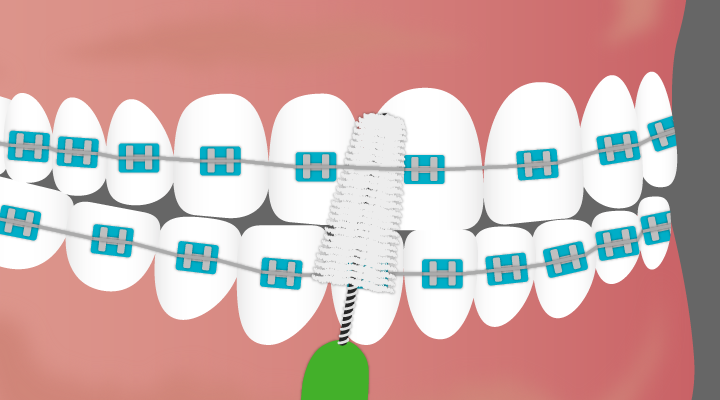
Have you ever wondered if it is possible for gums to grow over braces? The road to straighter teeth requires extra special care and attention since braces will change your daily oral health practices. Straightening teeth with braces isn’t only about improving your smile. In fact, straightening teeth can lead to a healthier mouth, too!
Crooked and crowded teeth can make it hard to brush and floss thoroughly, which can lead to cavities, gum inflammation (or swelling), and gum disease. But braces can cause some unexpected changes in the mouth while they’re working to straighten your smile. A common question for orthodontists and dentists is, “Are my gums growing over my braces?”
While it may appear that’s the case, here’s what’s really happening:
Braces cause changes in our mouths. That means our daily oral health care routine needs to change, as well. If brushing and flossing with braces isn’t done thoroughly, you can experience gum inflammation, or swollen gums.
But why?
Braces create more nooks and crannies wherein food and bacteria can build up. As we know, extra food and bacteria in the mouth creates plaque, a sticky film of bacteria. When we don’t properly brush and floss to remove this, it can lead to gum disease. Because of gum irritation from the harmful bacteria in plaque, the gums may swell. The swelling in your gums, when combined with your braces, can trap more food and make it even harder to brush and floss properly. And more bacteria in your mouth equals more swelling. So though swollen gums may look like gums growing over braces, they’re not actually growing.
Hormone changes can also lead to swelling of the gums, so be sure to contact your dentist or orthodontist if you are experiencing swollen gums with braces.
It’s important to follow your orthodontist’s recommended cleaning methods to ensure a bacteria and inflammation-free mouth. Special floss and brushes made for braces can help clear the debris around and in between the brackets and in hard-to-reach areas. This can reduce swelling and help prevent further swelling in the future.
If you have braces, look into getting an electric toothbrush and special brushes for cleaning your brackets. These brushes are called interproximal brushes and sometimes called “Christmas trees.”
Researching for your child? Remember, younger children don’t have the dexterity to floss thoroughly on their own, so don’t forget to lend a helping hand. If you or your child is experiencing any discomfort or concern with your braces, contact your dentist or orthodontist.
Click here to find a dentist near you.
For more information on braces, check out:

